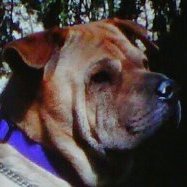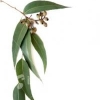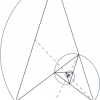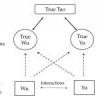Search the Community
Showing results for tags 'tao te ching'.
Found 12 results
-
Hello, I hope it's okay to repost my welcome post. Hello, Not quite sure what to say, but suppose it's best to be direct. I'm in my early 20s and from a traditionalist conservative evangelical Christian background. I've studied some in universities, traveled a lot, wrestled with my faith a lot, and through a long questioning process, finally was able to abandon my faith in Christianity. I have resentments towards Christians, and Americans in general, traveling has really shown me what a messed up place America is, but I know I need to grow out of resentment. Anyway, I read Tao Te Ching and Zhuangzi's teachings, and they really resonated with me, and then I found J Krishnamurti, and he seems to take Taoism to its logical conclusion better than most religious Taoists do. I've seen how every country has its idols, its Gods. In the end, it's all meaningless, emptiness. Religion is a crutch. Even secular countries feel the need to worship "democracy", "science", and "equality". Most people have a need to know things, to have things figured out. Anyway, I guess what I mean is I have low tolerance for BS. I know it's pointless to strive for immortality. I don't really care for a "kundalini awakening", or "opening the chakras". Does anyone know of a place where I can find a master that actually practices what's expressed in the Tao Te Ching and Zhuangzi without overemphasis on exercises? A place where I can go live out my life without dealing with a public that just wants some blessings or stress relief exercises while continuing to live their miserable lives? Maybe a cave or remote mountain, like the days of old? I'm in Taiwan right now. I'm willing to travel anywhere in Asia or even beyond. I don't understand the mindset of most religious Taoists here. I struggle to see the value of putting an exercise first, and adding in a bunch of other dogma from Buddhism like karma and reincarnation. In christianity you're put on a treadmill where you're supposed to go out and do good works and evangelize. Buddhism and Karma doesn't strike me as much different. Just another opportunity for people to lord power over others. Am I crazy?
- 41 replies
-
- 4
-

-
Hello, Not quite sure what to say, but suppose it's best to be direct. I'm in my early 20s and from a traditionalist conservative evangelical Christian background. I've studied some in universities, traveled a lot, wrestled with my faith a lot, and through a long questioning process, finally was able to abandon my faith in Christianity. I have resentments towards Christians, and Americans in general, traveling has really shown me what a messed up place America is, but I know I need to grow out of resentment. Anyway, I read Tao Te Ching and Zhuangzi's teachings, and they really resonated with me, and then I found J Krishnamurti, and he seems to take Taoism to its logical conclusion better than most religious Taoists do. I've seen how every country has its idols, its Gods. In the end, it's all meaningless, emptiness. Religion is a crutch. Even secular countries feel the need to worship "democracy", "science", and "equality". Most people have a need to know things, to have things figured out. Anyway, I guess what I mean is I have low tolerance for BS. I know it's pointless to strive for immortality. I don't really care for a "kundalini awakening", or "opening the chakras". Does anyone know of a place where I can find a master that actually practices what's expressed in the Tao Te Ching and Zhuangzi without overemphasis on exercises? A place where I can go live out my life without dealing with a public that just wants some blessings or stress relief exercises while continuing to live their miserable lives? Maybe a cave or remote mountain, like the days of old? I'm in Taiwan right now. I'm willing to travel anywhere in Asia or even beyond. I don't understand the mindset of most religious Taoists here. I struggle to see the value of putting an exercise first, and adding in a bunch of other dogma from Buddhism like karma and reincarnation. In christianity you're put on a treadmill where you're supposed to go out and do good works and evangelize. Buddhism and Karma don't strike me as much different. Just another opportunity for people to lord power over others. Am I crazy?
-
I have been a student of the Daodejing for many years. My study has largely consisted of reading various translations and interpretations of DDJ and reflecting on its meanings. I think this is the way many of us have started with Daoism. As I read the various translations and interpretations of DDJ, I began to see the influences that the writers had on rendering the work; their point of view, as it were. As must be the case, these points of view are decidedly western, and quite often Christian. Even the more scholarly efforts, in spite of best intentions, often contain traces of western and Christian thinking. Being aware of this, you can recognize it and make what ever accommodations you feel inclined. Still, I began to suspect that some publications were actually more interpretations than translations, particularly the less scholarly ones. Researching the background of the writers, particularly their ability with written and spoken Chinese, and reviewing the bibliographies of their works, helps in sensing how much more a work is of interpretation than translation and the amount of value you can place on the work. This has led me to question how informed the translations are ... or rather, how the translations were informed? What, beyond ability with the Chinese language is necessary to translate a work like the DDJ. Knowledge of Chinese culture, as a matter of general understanding, certainly contributes to translation, as does understanding of Chinese history. Even so, as I read the various DDJs, I still struggled with the seemingly enigmatic language and symbolism of the translated text, despite having tried to select works of knowledgeable translators. Many translators don't provide much explanation. Simply relying on the truthful feel of the DDJ, however strong, was not developing my understanding. I just felt the need for a more appropriate and specific context in which to make sense of the DDJ. Something that might make the DDJ more actionable in terms of practice of the ideas put forward. To that end, I began to look at translations of other source texts. Certainly, there is no shortage of references to such texts, particularly in the more scholarly translations. I settled on two such works that have opened up for me a whole different level of understanding of the DDJ; The Seal of the Unity of the Three by Fabrizio Pregadio and The Thread of Dao by Dan G Reid. It is with this backdrop that I start this thread. I am not a scholar or academic but simply one on the journey, seeking to share my impressions. My hope is that others, familiar with these works or not, will share their ideas as well. So, initially, what do the Bums think of these two works in general and how have you used them? btw, this is my first attempt to initiate a thread. If I am violating and rules, customs or conventions, please let me know. ; )
- 15 replies
-
- 4
-

-
Can anyone tell me more about this Guy. I tried searching here to see if this System is Discussed here. Would this be considered a genuine lineage ? I'm posting the website and another video : https://www.tinyatdragon.com/
- 28 replies
-
https://xingyibaguablog.wordpress.com/2017/02/12/how-i-dao-dao-de-parsons-pt-1/ So here is part of a project I’m doing to make a plain language Dao De Jing for modern Western types to understand the concepts of it. It’s not all flowery mystical language but rather a fairly simple thing but at times it does have very specific references to Daoist meditative practices. I will admit I am inspired by those who have really made efforts to make this understandable to everyone. Ted Slingerland’s conversation with Chris Ryan was very enlightening. Daniele Bolelli’s Taoist Lecture Series was very enjoyable and similar to what I’m trying to convey here. I’ll be doing this in 9 parts of 9 chapters each. Understand, this is really difficult to put together as I’m working from translations, embodied practice of Daoist movement arts, philosophy from all over the world, and a very pragmatic, scientific viewpoint on the mystery of this universe I’ve seen with my own eyes. I’ve read a number of translations of the Tao Te Ching/Dao De Jing over the years and I’ve come to realize this is really deep, multi-layered stuff with roots not only in meditation and Chinese folk religion, but also the everyday life of a Chinese person of the era, as well as logic, algebra, numerology, and geometry. The two texts I’ve mainly consulted have been the Worldwide I-Kwan Tao Headquarters English translation and the compilation of various translations by B. Boisen at Boston University. The WITH.org version because it is already an attempt at plain language from an organization that has been known to be associated with internal martial arts in the past. The B. Boisen compilation because it has a number of translations I can easily compare and glean multiple layers of meaning from. The text I provide in-blog is from the WITH translation and the attempt at a plain language interpretation is underneath. Dao de Parsons – The First 9 Chapters Chapter 1 Tao (The Way) that can be spoken of is not the Constant Tao’ The name that can be named is not a Constant Name. Nameless, is the origin of Heaven and Earth; The named is the Mother of all things. Thus, the constant void enables one to observe the true essence. The constant being enables one to see the outward manifestations. These two come paired from the same origin. But when the essence is manifested, It has a different name. This same origin is called “The Profound Mystery.” As profound the mystery as It can be, It is the Gate to the essence of all life. Once you start talking about it it can’t truly be known. The first rule of Fight Club is you don’t talk about Fight Club – but everyone does. Once you label a variable it’s not really that thing it’s just labeling a variable, x is not really x but we call it that for convenience. This ineffable thing is the beginning of everything and has polarities as it arises toward and passes away from manifestation. Once you label something it is manifest as that label in your mind and you perceive it that way, affecting your perception of everything else. Better not to label something to truly understand it. While the polarities are arising, adding, and multiplying to generate everything at the same time; the very act of observation, divides and subtracts it into its constituent, manifest parts. The void allows one to create a simulated observation ground. From unity comes polarity. Polarity is the basis of all outward observation and examination. When two objects orbit each other understand that centrifugal force and a centripedal force are really the same thing but centrifugal force is caused by properties of the centripedal. The middle of their relative orbits is kinda hard to find but it’s the place you have to start from to figure out everything else’s relationship to each other in space. Chapter 2 As soon as beauty is known by the world as beautiful, it becomes ugly. As soon as virtue is being known as something good, it becomes evil. Therefore being and non-being give birth to each other. Difficult and easy accomplish each other. Long and short form each other. High and low distinguish each other. Sound and tone harmonize each other Before and after follow each other as a sequence. Realizing this, the saint performs effortlessly according to the natural Way without personal desire, and practices the wordless teaching thru one’s deeds. The saint inspires the vitality of all lives, without holding back. He nurtures all beings with no wish to take possession of. He devotes all his energy but has no intention to hold on to the merit. When success is achieved, he seeks no recognition. Because he does not claim for the credit, hence shall not lose it. Shut off the wordy, desirous, narrative part of your mind so you can see the world without a perceptive filter. Look at what is instead of what you think it is. It’s pretty big and crazy out there and very much a mystery. Still, once you look at it – the principles of the universe – everything else you examine represents it. Difficult and easy accomplish each other – until one puts the work in at a skill it won’t be easy. It’s better to develop a student by building groups of easy tasks in a step-by-step manner to develop into complexity than it is to throw a challenge on a person who is not ready. Still it’s two sides of the same coin. Explore the world around you, climb up high, crawl down low. Listen to the silence and sound the emptiness – like a woman who enters a cave for the first time thinking it is dead but truly there is much happening within that only one who is silent and still herself can perceive. Trek through polarity and its many manifestations from high to low, long and short. Color in those shades of grey. The internal and external are part of the same thing, try to do both and bring them together. If you want to be a decent person let others do whatever the hell it is they want. Let people and other creatures live within their natural way. Don’t be possessive of what is not yours. A lioness needs to feed her cubs, is the sheep any less her food because it roams a field you claim? Work for what you want with all you can and don’t expect reward or praise. If you’re not looking for outside acknowledgement what does it matter what those people think? Everything arises around a good person but that doesn’t mean they want to take it for themselves. Do your work without narrative, you won’t suffer if you don’t tell yourself how hard you are working. If you are not even aware of an accomplishment that skill will stay with you as it just a tool to be used. To teach this stuff is doing nothing, you can’t spout off about not talking. Chapter 3 By not adoring the worthy, people will not fall into dispute. By not valuing the hard to get objects, people will not become robbers. By not seeing the desires of lust, one’s heart will not be confused. Therefore the governing of the saint is to empty one’s mind, substantiate one’s virtue, weaken one’s worldly ambition and strengthen one’s essence. He lets the people to be innocent of worldly knowledge and desire, and keeps the clever ones from making trouble with their wits. Acts naturally without desire, then everything will be accomplished in its natural order. Often people don’t know how good something was until they can look back at it. Those good party times might be seen as miserable a few years down the road, the bad times you think you are going through right now might be good in comparison to the shit storm later. Either way, it’s dependent on your label and perception of the moment, eventually it’s going to change. Given enough time most everything decays or transforms in nature in some way or another. We shouldn’t really be praising people about stuff so much. People won’t be so contentious if everyone just does what they will. Why value things? They pass. No one will rob you if it has no value. These weird desires for things that pass or change isn’t worth it, if you’re not always looking for the next new toy you’ll be much happier with what you have. To live a good life try not to think too much, practice what you preach, do not desire after stupid shit, eat healthy and exercise. If there is a dumbass among you let him continue on that way, don’t strive to educate him that will just make him mad and you more. If there is someone too smart for their own good, try to steer them away from the dummies so he doesn’t fuck with the whole town. Just do what feels right and for the most part things will click into place. Chapter 4 Tao (The Way) can be infused into the nature and put to use without being exhausted. It is so deep and subtle like an abyss that is the origin of all things. It is complete and perfect as a wholeness that can Round off sharp edges; Resolve confusion; Harmonize with the glory; Act in unity with the lowliness. Tao is so profound and yet in invisible, It exists in everywhere and anywhere. I don’t not know whose Son It is, It existed before heaven and earth. There is a constant cycle of arising and passing that is truly infinite. As one being is born and eats its mother – the child’s first meal is the very process of its own origin passing into the world as waste from a once living thing. Thus death and life sustain each other. The principles of the universe can be seen everywhere – it’s an infinite thing underlying all existence. The beginning is like a deep and subtle abyss or an emptiness or black hole that is the origin of all things. The universe and its principles exist in everywhere and anywhere. I don’t know how this thing got here, it was around before we were, and reflects whatever created this. Chapter 5 Nature nurtures all things with the wholeness of complete virtue. It shows the greatest and perfect kindness by giving life to let all things grow and accomplish them with the hastening of harvest. Therefore, according to ancient custom, nature may seem unkind to regard all beings as a traditional straw dog for sacrifice. And likewise with a saint, he may seem unkind to regard people as a traditional straw dog for sacrifice. The space between heaven and earth is like the bellows, it appears empty yet it gives a supply that never fails; The more it moves, the more it brings forth. Many words lead to exhaustion. It is better to center on the true essence within. Basically what this is saying is that we should give no more thought to the value of human life than we do to anything else we would use and discard. So humans are no more special than livestock, we have our place in the world and when we stray from that the universe is no kinder to us and we should not expect a kind place to live. The heart and lungs are great analogs for bellows as both pump fluid, the lungs air and the heart blood. Together these two organs are responsible for a lot of positive and negative emotions in Chinese thought. For the heart/small intestine organ complex we have a primary emotion of joy and for the lungs/large intestine we have the primary emotion of grief. These two things together color almost every single human experience, red and silver respectively. The space between heaven and earth is occupied by man, in the body the middle dantian or heart/mind center is associated with emotion. Basically it’s saying you can have emotions from joy to sadness, from grief to exuberance, from extreme lust to periods of chastity – there’s an infinite supply of emotions available and the more emotional you are, the more emotional you will be. It’s basically saying shut up and calm your tits – meditate while focusing on the center of the body or zhong ding/central channel. Chapter 6 Spirit of the valley is immortal. It is called the mystic nature. The gate of the mystic nature is regarded as the root of the universe. It is everlasting and cannot be consumed. This has to do with very specific points and meditative methods it’s really not accessible until someone has put in the work. Why did the chicken cross the road? Who fucking cares. I believe the Spirit of the Valley has something to do with the occiputal junction or the corpus callosum. I’d have to check into it again, largely useless until one has some meditative training and understanding of Daoist alchemical processes. Chapter 7 Heaven is everlasting and earth is enduring. The reason that they are everlasting is because they do not exist for themselves. Hence, they are long lived. Thus, although the saint puts himself last, finds himself in the lead. Although he is not self-concerned, finds himself accomplished. It is because he is not focused on self-interests and hence can fulfill his true nature. Look at nature, there are things that keep going for a damned long time – and it’s because they don’t exist just for selfish reasons, they do not exist with a self at all. So don’t think about yourself, put your desires down and keep working, it will fit together. It’s talking about some kind of divine yin energy that is inexhaustible. Her gateway being the root of heaven and earth probably refers to the lower dantian as both the Conception and Governing Vessels begin in this general area and there are extant traditions that talking about developing this part of the body. Chapter 8 A person of great virtue is like the flowing water. Water benefits all things and contends not with them. It puts itself in a place that no one wishes to be and thus is closest to Tao. A virtuous person is like water which adapts itself to the perfect place. His mind is like the deep water that is calm and peaceful. His heart is kind like water that benefits all. His words are sincere like the constant flow of water. His governing is natural without desire which is like the softness of water that penetrates through hard rocks. His work is of talent like the free flow of water. His movement is of right timing like water that flows smoothly. A virtuous person never forces his way and hence will not make faults. Try not to be an asshole, try to help everyone and everything you come across, if you can help that is. Flow like water, with enough time it can get to the deepest parts of the earth and becomes closer to stillness. Adapt to what is going on around you. Continuing the water train of thought – let your mind be calm, let your heart flow freely to benefit all, and let every word flowing from your mouth be sincere. If you need to correct someone in your life be soft, try to penetrate through the smaller channels to break hard rock. Let your work flow effortlessly from you – smooth out your movements so you don’t work too hard. Subsume your personal interest and don’t let it be easily seen. Just because one is not obviously selfish does not mean one does not work to one’s own goals. If you don’t compete in the first place no one loses. Chapter 9 Those who overly pride wealth is like the overflowing water which shall cause damages. It is better to restrain early. Those who are not content with fame is like polishing the edge of a knife. The sharper it gets, the easier it is to break. Wealth and treasures are but illusions that one cannot possess. Those who are arrogant of their wealth and fame shall invite blame upon oneself. The nature Tao teaches one to retreat after one’s success and not to hold on to the credit. Those greedy fucks ruin everything around them, better to stamp that shit out early. Those who desire and acquire fame should understand – they are whittling themselves down until they break. Material stuff is illusory and those who are proud of it are shameful. Better to achieve a goal and then move on to something else than be overly proud of accomplishment. Once you make a sword and sharpen its blade it will only get duller with use. If you have so much that you can’t keep track of it all, eventually someone will steal from you. So work to a point, accomplish that, and retire. Retirement is how one develops their spirit, you can’t take your toys with you when you die.
- 4 replies
-
- 2
-

-
- dao de jing
- tao te ching
-
(and 1 more)
Tagged with:
-
Hi all, I am new to this forum, but very intrigued. I did my first post and shared a little about myself, however, I am honestly just here asking for help. I have a few books on Taoism (Tao Te Ching, Awaken Healing Light of the Tao by Chia, The Tao of Inner Peace), but I am very new on my path. I spent a few years smoking a lot of Cannabis recently before I got started on my new path with meditations and Taoism and I feel as if the energy was mostly in my head. I was living in a state of needing to always be high. I am worried a may have gotten some blockages or stuck energy because when I do deep abdominal (lower dan tien) breathing there is a bit of tightness when I fully inhale that is sort of painful. Also there is tightness in my lower back a little. What is the best system to start trying to fix this? I do deep belly breathing, but should I be doing it all day every day? Or just once a day? I am a cery dedicated person I just need to be pointed in the right direction. I am awaiting "Opening the Energy Gates of Your Body" that I ordered on Amazon. Any book or lifestyle suggestions would greatly help me. Also, when I do some deep breathing I can crack my upper spine by pulling my shoulders back. Im assuming this means stuck energy being dislodged? I am I lifegaurd at a pool for the summer and have a lot of free time during the day. Any advice guys? Thank you in advance for anyone sharing knowledge
- 55 replies
-
- Lower dan tien
- Breathing exercises
- (and 5 more)
-
I am beginning a study of the "Tao Te Ching" and happily came across this site. My interest in Taoist Philosophy and the "Tao Te Ching" grew from an interest in "The Art of War, and (especially) my interest in the game of go (Wei Chi). I am happy to find this forum of other seekers, and look forward to getting to know you. In addition to Tao and the "Tau Te Ching", my interests are: The game of Go. The study of strategy (as a subject unto itself). "The Art of War" by Sun Tzu "The Book of Five Rings" by Musashi Pedagogy, teaching methods, communication of ideas... "Bloom's Taxonomy" as a method of facilitating communication of ideas the use of the above to facilitate learning and action I look forward to meeting you, and wish all of you well. --ptw--
- 1 reply
-
- Tao Te Ching
- Go
-
(and 1 more)
Tagged with:
-
I really am exposing my inexperience here, but I'd like to ask the forum for some further information on an area of Taoism that I would like to know more about. I've heard said that in Toaism there are 5 so called "Cardinal Virtues": Righteousness, Wisdom, Benevolence, Propriety, and Fidelity (I've also heard a different account that there are 8 virtues to be reckoned with). In the Tao Te Ching I can find mention of some of these. For instance with verse 38 (the beginning of the second part of the text): 38(Those who) possessed in highest degree the attributes (of the Tao) did not (seek) to show them, and therefore they possessed them (in fullest measure). (Those who) possessed in a lower degree those attributes (sought how) not to lose them, and therefore they did not possess them (in fullest measure). (Those who) possessed in the highest degree those attributes did nothing (with a purpose), and had no need to do anything. (Those who) possessed them in a lower degree were (always) doing, and had need to be so doing. (Those who) possessed the highest benevolence were (always seeking) to carry it out, and had no need to be doing so. (Those who) possessed the highest righteousness were (always seeking) to carry it out, and had need to be so doing. (Those who) possessed the highest (sense of) propriety were (always seeking) to show it, and when men did not respond to it, they bared the arm and marched up to them. Thus it was that when the Tao was lost, its attributes appeared; when its attributes were lost, benevolence appeared; when benevolence was lost, righteousness appeared; and when righteousness was lost, the proprieties appeared. Now propriety is the attenuated form of leal-heartedness and good faith, and is also the commencement of disorder; swift apprehension is (only) a flower of the Tao, and is the beginning of stupidity. Thus it is that the Great man abides by what is solid, and eschews what is flimsy; dwells with the fruit and not with the flower. It is thus that he puts away the one and makes choice of the other. http://sacred-texts.com/tao/taote.htm I can also surmise that the lessons of Fidelity are strewn throughout the text with one particulary powerful example in verse 81 (where in the translation I link 'Fidelity' as a term is interchanged with 'sincerity'): 81Sincere words are not fine; fine words are not sincere. Those who are skilled (in the Tao) do not dispute (about it); the disputatious are not skilled in it. Those who know (the Tao) are not extensively learned; the extensively learned do not know it. The sage does not accumulate (for himself). The more that he expends for others, the more does he possess of his own; the more that he gives to others, the more does he have himself. With all the sharpness of the Way of Heaven, it injures not; with all the doing in the way of the sage he does not strive. http://sacred-texts.com/tao/taote.htm In my grappling with google, when I search for these terms in relation to Toaism I find various commentaries on the Tao Te Ching, people's personal musings on Taoism in general, but no other (as far as I can see) official canon. So my question is: 'Is there a classic text, or a school of Taoism that includes these things? And where are these virtues are enshrined, apart from in the Tao Te Ching?' It's a topic I'm profoundly interested in so any help will be much appreciated. Thanks.
- 29 replies
-
- Tao Te Ching
- Righteousness
-
(and 4 more)
Tagged with:
-
I don't usually read interpretations for TTC because I like to figure things out for myself. Now I've done enough thinking, I say I'm ready to ask for some interpretations. Lao Tzu talks a lot about the filling of bellies. What does he/do you think he means? My view is that he is talking about feeding until satisfied...whether that is with chi, food or as metaphorical as anything in life... What are your thoughts?
- 66 replies
-
- lao tzu
- tao te ching
-
(and 2 more)
Tagged with:
-
Hello to all. This is a little bit of self advertising which I hope doesn't offend. For the past seven years I have been sitting for an oil painter for about 6-10 hrs./week. It has been an interesting journey and near the beginning I was finding it hard to stay awake. I came across Dr Stephen T. Chang's book of Internal Exercises and started practicing to see if it would help. Well seven years later over 20 paintings have been created and many hrs. of taoist meditation practice: and yes it did work. This last year culminated to an art show of all the paintings. Also from studying (and meeting) Dr Stephen Chang who is a great scholar of the Tao Te Ching, I was inspired to edit James Legge's classic, the "Tao Te Ching" to make it gender neutral, and hopefully less cryptic. I have enjoyed in particular James Legge's translation after studying many other translations by different authors, but always felt it was male orientated and also slightly Christian based (not that that is negative). So I set out on the path of re-writing it. I thought this would be straight forward, but found that every paragraph and expression that I approached felt worthy of being contemplated upon, sometimes for weeks and/or months! Anyway it's done, and available and this is what I am sharing in this post:) Below is the link. I would warmly appreciate feedback if anyone feels to buy and cherish. The price may seem high compared to other copies but the book publishing costs take a large %, and anyway it is a priceless item! https://www.northstarmeditation.co.uk/my-latest-book-tao-te-ching.php Love and blessings to all that cultivate. x
- 2 replies
-
- tao te ching
- dr stephen chang
-
(and 3 more)
Tagged with:
-
I have been an independent researcher on Tao philosophy since 1999. I hope to contribute to our understanding of the mystery of Tao. My first analysis is published as The Dynamic Tao and its Manifestations (2004). For the next 8 years, have been absent from most discussion groups due to my continued work on the principle and logic in the Tao Te Ching. I will soon publish my new works. I hope to be able to spend some time online to discuss the principle and logic of Tao. There will be some major hurdles to overcome, since very few people will believe in a logical Tao philosophy.
- 9 replies
-
- 5
-

-
- Author
- Tao Philosophy
-
(and 3 more)
Tagged with:
-
Duplicate entry.
- 1 reply
-
- Author
- Tao Philosophy
-
(and 3 more)
Tagged with:








